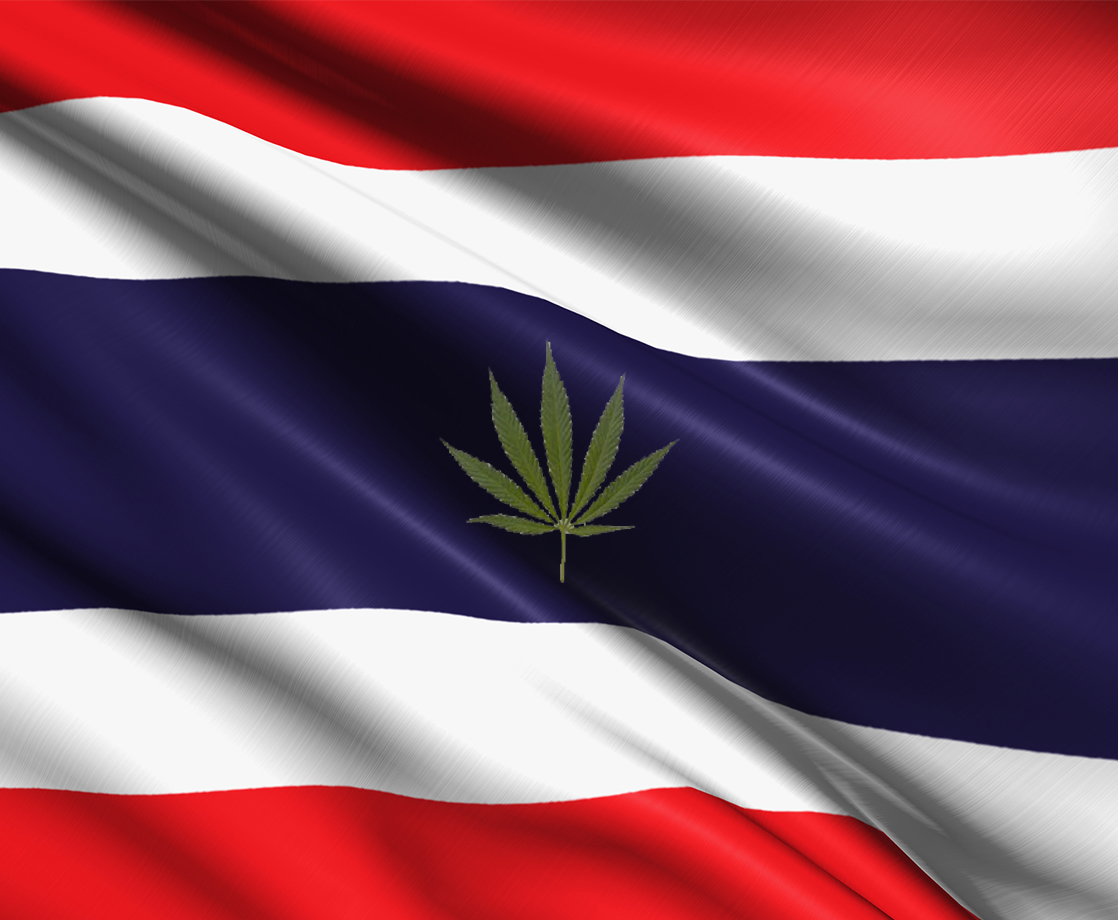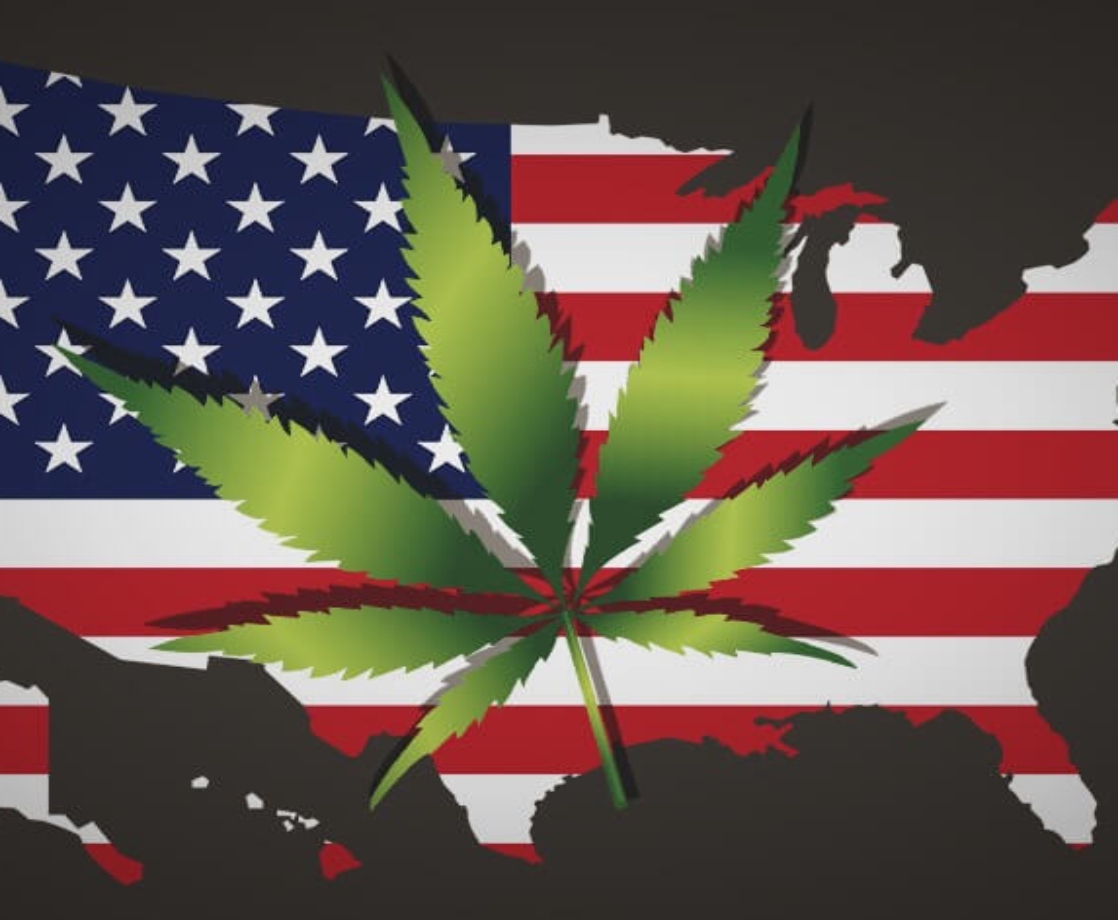2018 will go down in history as a banner year for cannabis reform, and some of the greatest achievements occurred during the last two weeks of the year. 80 or so odd years of hemp prohibition came to an end last month when President Trump signed the 2018 Farm Bill into law, legalizing industrial hemp and paving the way for a fully-legal CBD industry. The U.S. was not alone in giving the gift of cannabis reform during the holidays — on Christmas Day, Thailand legalized medical marijuana and Israel legalized the export of medical marijuana products to other countries.
Back in the U.S., Oregon lawmakers have proposed a bill to allow local medical marijuana businesses to export their products to other states. And in the Midwest, Ohio may be on track to finally open its first medical marijuana dispensaries this month after years of delays. In Michigan, full adult-use cannabis just became legal, and a grey-market pot “gifting economy” is springing up while state regulators work to draft regulations concerning legal sales. In other news, the Supreme Court reported that the total number of federal marijuana prosecutions in 2018 decreased significantly from the previous year. Let’s dig in.

Hemp Is Now Legal, Sparking Hopes of a Robust CBD Industry
At the end of 2018, President Trump signed the 2018 Farm Bill into law, legalizing the cultivation and production of industrial hemp in all 50 states. The bill, championed by Senate Majority Leader Mitch McConnell, allows farmers to grow cannabis plants containing less than 0.3% THC, so long as they submit their cultivation plans to state or federal authorities. Unlike state-legal marijuana businesses, hemp farmers will be eligible for federal crop insurance, can import and export seeds and products across state lines, and will have full access to banks and financial services.
“The significance of this law change should not be underemphasized,” NORML Deputy Director Paul Armentano said in a statement. “This law marks the first change in the federal classification of the cannabis plant since it was initially classified as a Schedule I controlled substance by Congress in 1970, and paves the way for the first federally-sanctioned commercial hemp grows since World War II.”
While hemp has traditionally been used to produce clothing, fiber, fuel, and food, it has more recently been cultivated as a source of CBD, a non-psychoactive cannabinoid with a dazzling number of medical uses. The popularity of hemp-derived CBD products has exploded over the past couple of years, despite the fact that the DEA has classified these products as dangerous Schedule I drugs. Although the Farm Bill technically legalizes all hemp-derived products, it does not specifically legalize CBD. The Food and Drug Administration recently released a statement clarifying that they still consider CBD to be a drug, making it effectively illegal to sell CBD-infused food or health products without the agency's approval.
FDA Commissioner Scott Gottlieb explained that his agency does “recognize the potential opportunities that cannabis or cannabis-derived compounds could offer and acknowledge the significant interest in these possibilities.” However, “we’re committed to pursuing an efficient regulatory framework for allowing product developers that meet the requirements under our authorities to lawfully market these types of products.” The CBD industry is likely to expand even further if the FDA does indeed approve the sale of these products, and some analysts are already predicting that the industry will surpass $1 billion in revenue by next year.
Thailand Legalizes Medical Marijuana
Last week, Thailand became the first Southeast Asian country to legalize medical marijuana. On Christmas Day, the country's parliament voted unanimously to amend the Narcotic Act of 1979 to allow the production of marijuana for medical and research purposes. The government intends to license cultivators, producers, and researchers to produce, import, and export cannabis, and will allow doctors to prescribe the new medicine to patients. Further details have not been announced, but Deputy Prime Minister Prajin Juntong told reporters that the relevant rules and regulations will be put in place once the law takes effect later this year.
“This is a New Year’s gift from the National Legislative Assembly to the government and the Thai people,” said Somchai Sawangkarn, chairman of the committee that drafted the legalization bill, Forbes reports. The new law does not change the country's harsh penalties for recreational use, however. Individuals caught with fewer than 10 kilograms of kancha – the local slang for weed – can face up to five years in jail and a fine of over $3,000. Those caught with more than 10kg are considered drug traffickers, and can face the death penalty.

Israel Legalizes Medical Marijuana Exports After Years of Delays
Israel, one of the first countries to widely embrace the medical potential of cannabis, has now legalized the export of medical marijuana to other countries. On December 25th, the Israeli Parliament unanimously passed the 16th Amendment to the Dangerous Drugs Ordinance, allowing the country's thriving medical pot industry to ship its products overseas. The Israeli Finance and Health Ministries actually approved medical marijuana exports back in 2017, but Prime Minister Benjamin Netanyahu shut these plans down early last year over fears that some of this product could end up on the black market.
In order to assuage these fears, the new amendment requires all cannabis companies who wish to export their products to receive approval from the Israeli Police, who are also authorized to supervise cannabis farms. "This new legislation removes the last legal obstacle which remained in the path towards approving export and signing it into Israeli law," Zohar Levy, CEO of Israeli cannabis firm Seedo, told Forbes. "By the end of the year 2019, Israeli companies will be able to take advantage of our edge technology and leverage the possibility to export high quality, pesticide-free medical cannabis to the world.” Analysts are predicting that this new market will bring the country as much as $4 billion annually.
Oregon Lawmakers Propose Bill to Allow Cannabis Exports
Oregon’s legal weed industry has been in a constant state of expansion since adult use became legal in 2014, but this rapid growth soon spiraled into massive overproduction. By 2018, the state's cannabis industry was reportedly producing over 1.5 million pounds of excess weed a year, causing prices to plummet. Analysts have estimated that about a third of all pot legally grown in the Beaver State is now being sold on the black market, attracting the watchful eye of federal authorities who have repeatedly threatened to intervene if the state cannot control the problem on its own.
A coalition of lawmakers and cannabis industry leaders have proposed a bold solution to the problem — a new bill that would allow excess cannabis to be exported to other canna-legal states. The bill would authorize Oregon officials to make deals with neighboring states like Washington, Nevada, and California to export pot across their borders, but would not allow exports to pass through states where weed is still prohibited.
"There are plenty of markets that would be thrilled to have world-class cannabis," said Adam Smith, founder of Oregon’s Craft Cannabis Alliance, The Statesman Journal reports. "But prohibition keeps us from sending it into those markets." Legalizing exports “would either slow or stop the price declines, because there wouldn't be any more excess,” said Beau Whitney of cannabis consulting firm, New Frontier Data. Federal law still remains an obstacle, though, because the transport of all Schedule I drugs — including cannabis — across state lines remains entirely illegal.
Ohio May Finally Begin Medical Marijuana Sales This Month
After years of delays, Ohio may finally open its first medical cannabis dispensaries within the next few weeks. The state's medical cannabis program was slated to go live last September, but delays in business licensing and approvals made the state miss its self-imposed deadline. Now, at long last, three cultivators are ready to bring dried cannabis flower to the market, and the state's first dispensaries have received their licenses. But before sales can begin, all product must be lab tested to ensure that it meets state regulations — and the state's first lab wasn't even approved to open until late last month.
“There will be product available really, really soon,” Mark Hamlin, senior policy advisor at the Ohio Department of Commerce, said to the Dayton Daily News. “We know the initial product will be very small. It will be limited as well, and it will be plant material only as we wait for processors to come online.” State law prohibits smokable medical marijuana, but allows registered patients to purchase dried flower for vaping. Edibles, tinctures, and oils are also legal, but the state has not yet approved processors to create these products.
.png)
Lead illustration by Stephen Maurice Graham via
Cannabis Gifting Economy Kicks Off in Michigan During Wait for Legal Sales
Cannabis has been legal in Michigan for about a month now, but legal sales are still a year away, as the state still needs to implement its licensing and regulatory framework for adult-use cannabis producers and retailers. In the meantime, the voter-approved legalization measure allows adults to gift up to 2.5 ounces of pot to any other adult, creating a loophole that is allowing canny entrepreneurs to kickstart their own grey-market retail operations. All across the state, several new startups are offering “free” weed alongside packages of inexpensive snacks, drinks, or clothing items.
A similar “gifting economy” has been thriving in Washington D.C., where cannabis possession and gifting are also legal, but sales remain prohibited. One D.C.-based company, High Road LLC, has already set up shop in Michigan, selling $55 bags containing art, snacks, and drinks — along with a free cannabis gift. “It’s in the gray area,” High Road founder Brandon Anthony Williams said to the Detroit News. “I just think they want to make sure people aren’t obviously out here selling drugs on the street. I’m not worried. We’re not trying to ruffle any feathers with the law. We’re college-educated professionals looking to get into the business.”
Federal Cannabis Prosecutions On the Decline as More States Legalize
Over the past decade, the number of states that have legalized medical or adult use cannabis has been growing steadily, and as this number grows, the federal government is slowly but surely being forced to relax its grip on prohibition. One telling sign of this phenomenon is the fact that federal cannabis-related prosecutions decreased significantly from 2017 to 2018, even though the total number of federal drug prosecutions increased during that time.
“Drug crime defendants, who accounted for 28 percent of total filings, grew two percent, although defendants accused of crimes associated with marijuana decreased 19 percent,” Supreme Court Chief Justice John Roberts wrote in an end-of-year report on the federal judiciary system.
“The decrease in federal criminal charges is a direct reflection of both the increasing number of states that have decriminalized marijuana possession and distribution, as well as the evolving nature of federal agents recognizing the futility of maintaining prohibition,” NORML political director Justin Strekal said to Marijuana Moment. “Given this trajectory, it is time that Congress act to deschedule cannabis and remove the senseless burden of the failed War on Marijuana and direct law enforcement to prosecute individuals who actually harm our society.”











